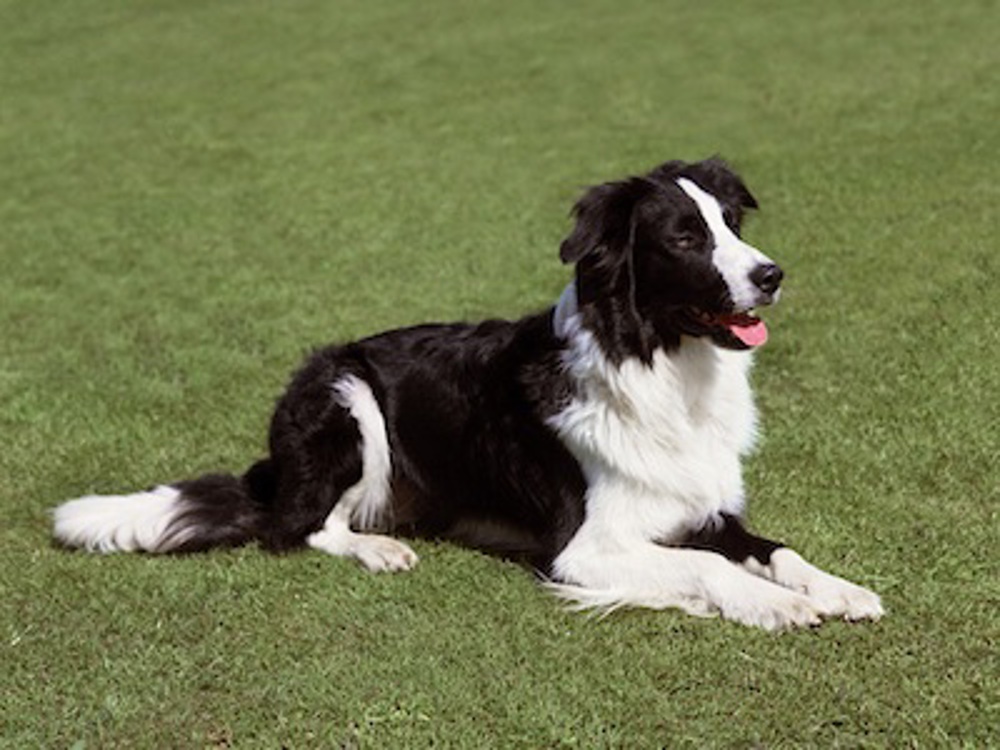
In a move designed to combat inherited disease in the Border Collie, The Kennel Club has approved a new official DNA test reporting scheme for dental hypomineralisation/Raine’s syndrome in the breed, following consultation with the breed health co-ordinator.
Dogs that are affected by dental hypomineralisation, otherwise known as Raine’s syndrome (or Raine’s synd. for short), have teeth that are not as strong as they should be. This means that they can be worn down more easily and can cause the affected dog pain.
Raine’s syndrome is known to affect Border Collies, with signs usually appearing at an early age. Affected dogs may develop brown discoloured teeth, smooth enamel, signs of wear, cracked teeth and inflammation. The only way to treat this condition is by extracting worn teeth.
Raine’s synd. is described as an autosomal-recessive condition. This means that a dog must inherit two copies of an abnormal gene (one from its mother and one from its father) before its health is likely to be affected. A dog that inherits only one copy of the abnormal gene (from its mother or its father) will likely have no signs of the disease, but will be a carrier and may pass the gene on to any offspring.
Tested dogs will be recorded on The Kennel Club systems as one of the following:
Clear
The dog does not have any copies of the abnormal gene associated with the disease. The dog is highly unlikely to be clinically affected and will only pass on a normal copy of the gene to a puppy.
Carrier
The dog has one copy of the normal gene and one copy of the abnormal gene associated with the disease. The dog is highly unlikely to be clinically affected, but may pass one copy of the normal gene, or one copy of the abnormal gene on to a puppy.
Affected
The dog has two copies of the abnormal gene associated with the disease. The dog will likely be clinically affected by the disorder and will pass one copy of the abnormal gene on to any potential offspring.
To find out which laboratories The Kennel Club is able to record results from for this test, and which labs will send results direct to The Kennel Club, please refer to our page about Raine’s synd. Please note that this listing is not necessarily comprehensive and other labs may offer the tests. To find out which DNA tests are relevant to your breed, visit The Kennel Club Breed A-Z.
Dr Tom Lewis, Head of Genetics & Research at The Kennel Club, said: “The Kennel Club constantly reviews DNA testing schemes in conjunction with breed clubs to ensure that breeders are supported with resources which help them to make responsible breeding decisions. The Kennel Club works alongside breed clubs and breed health coordinators in a collaborative effort to improve the health of pedigree dogs and is happy to consider a club's request to add a new DNA test to its lists. A formal request from the breed's health coordinator or a majority request from the breed clubs is normally required to do this.”
Test results will be added to the dog’s registration details which will trigger the publication of the result in the next available Breed Records Supplement and also on the Health Test Results Finder on The Kennel Club's website.
Results for dogs already tested can also be recorded, but owners will need to submit copies of the DNA certificates themselves. DNA test certificates should be scanned and emailed to the health results inbox.
Owners are reminded that from August 2018, it is mandatory that the dog’s microchip (or tattoo) is recorded along with either the dog’s registered name or registered number on any DNA certificates. Any test results issued after that date that do not carry these identifying features will not be added to The Kennel Club's systems.
